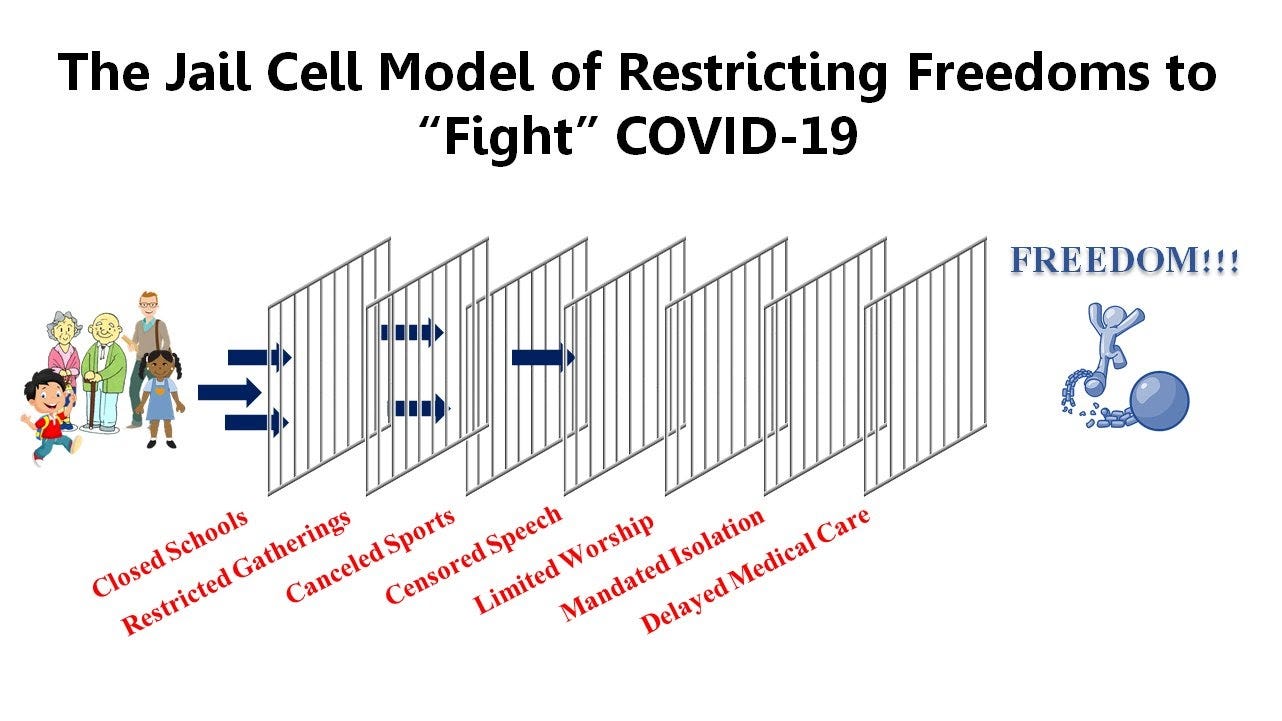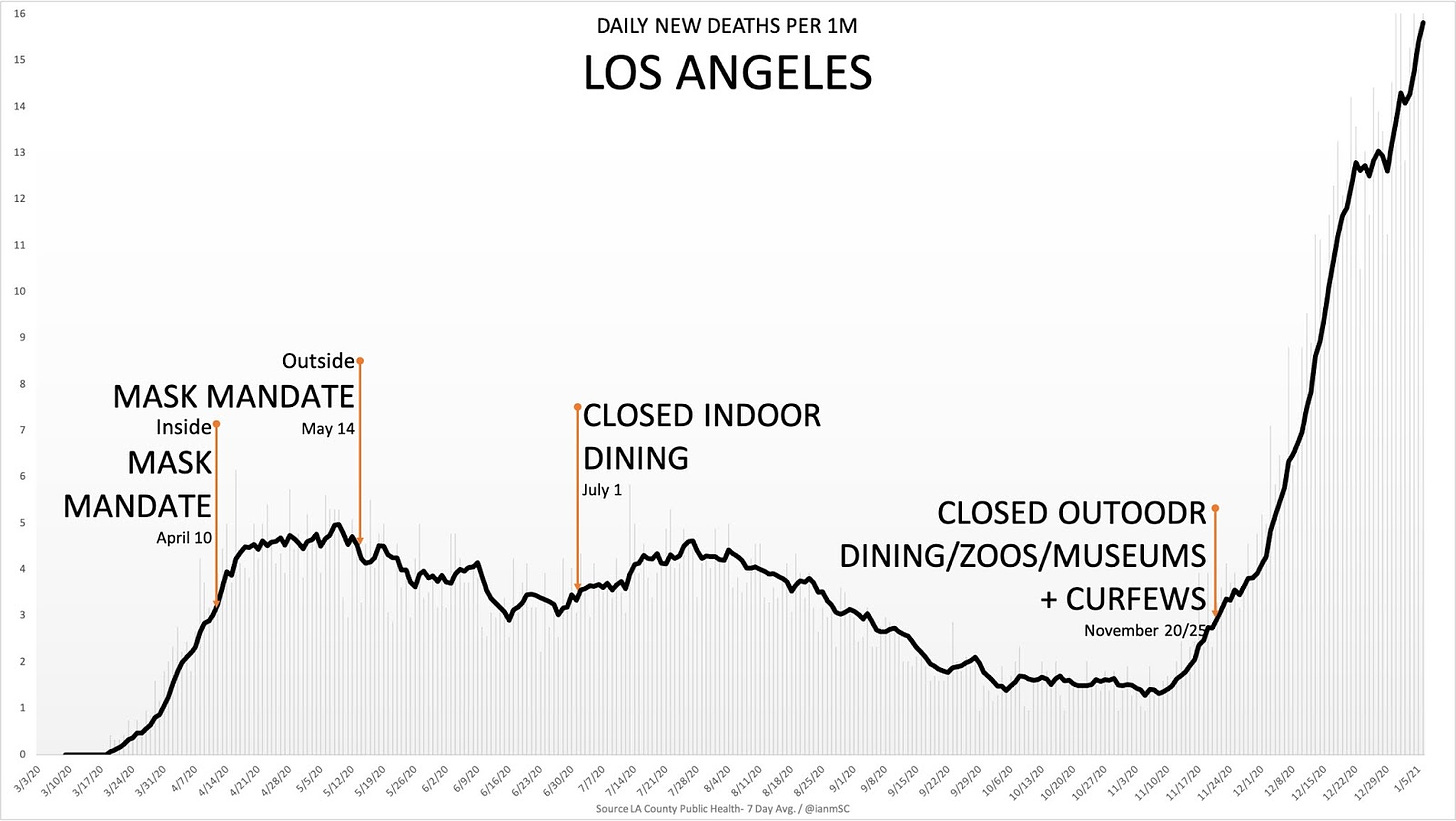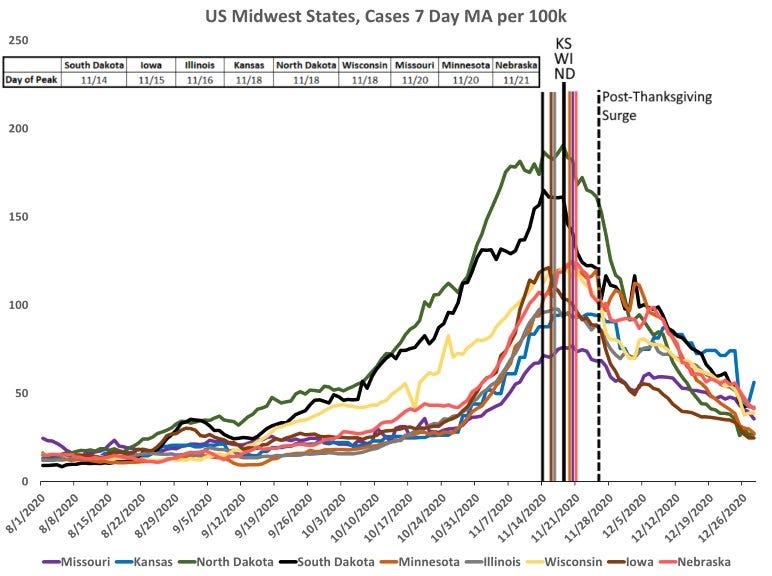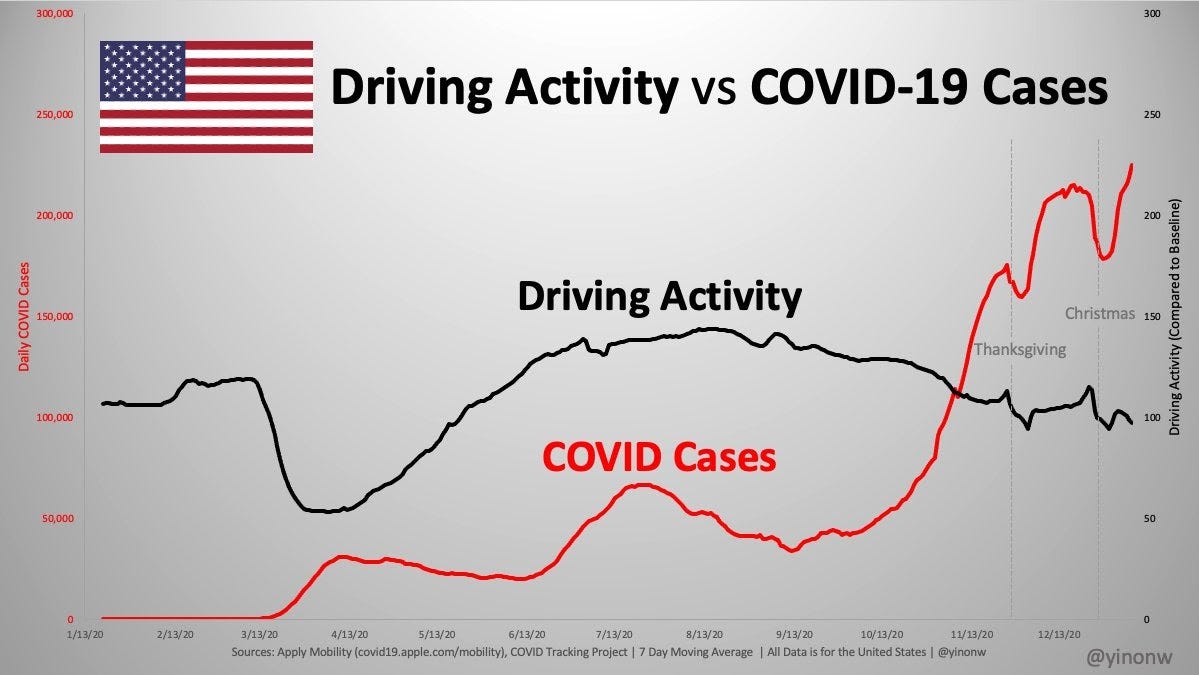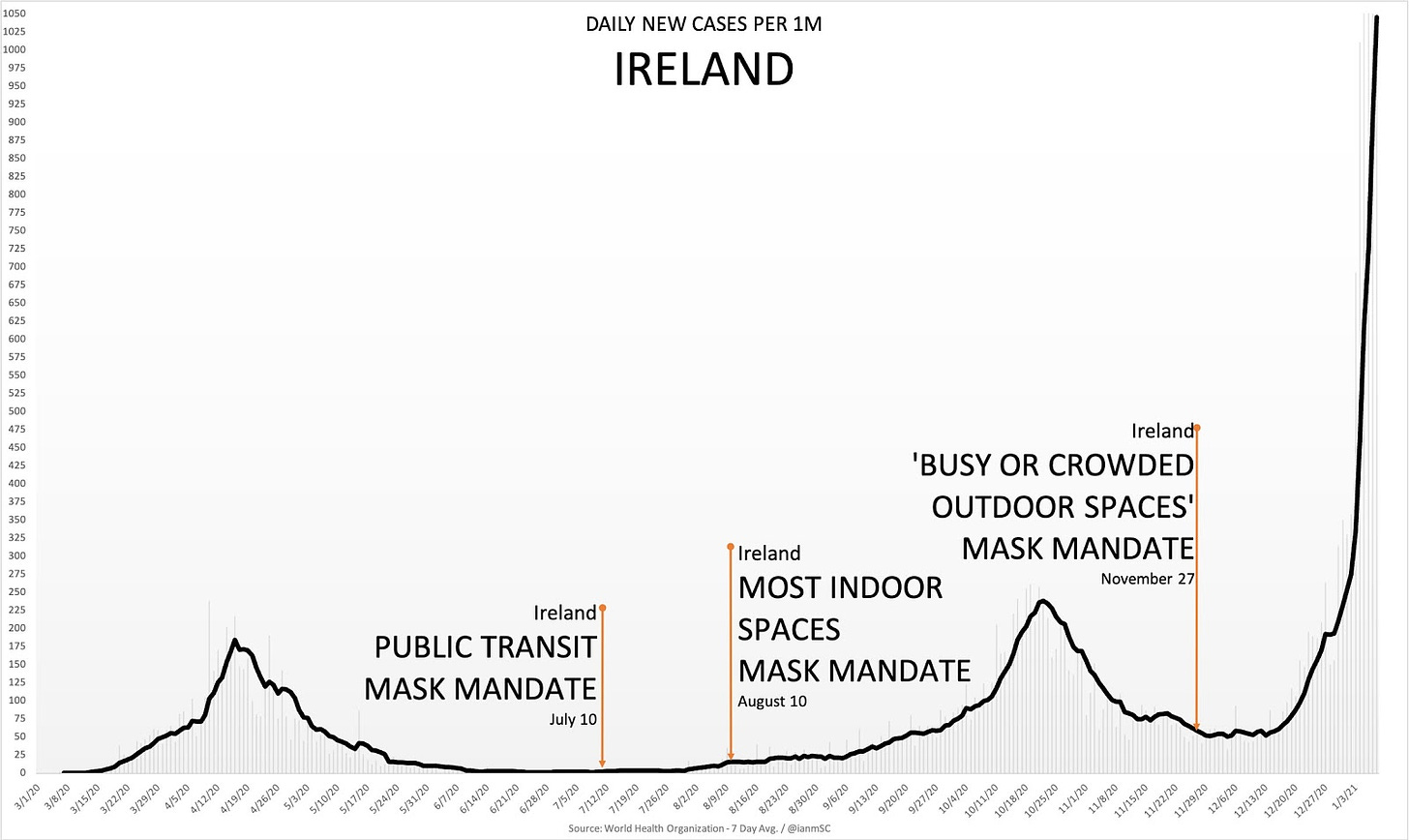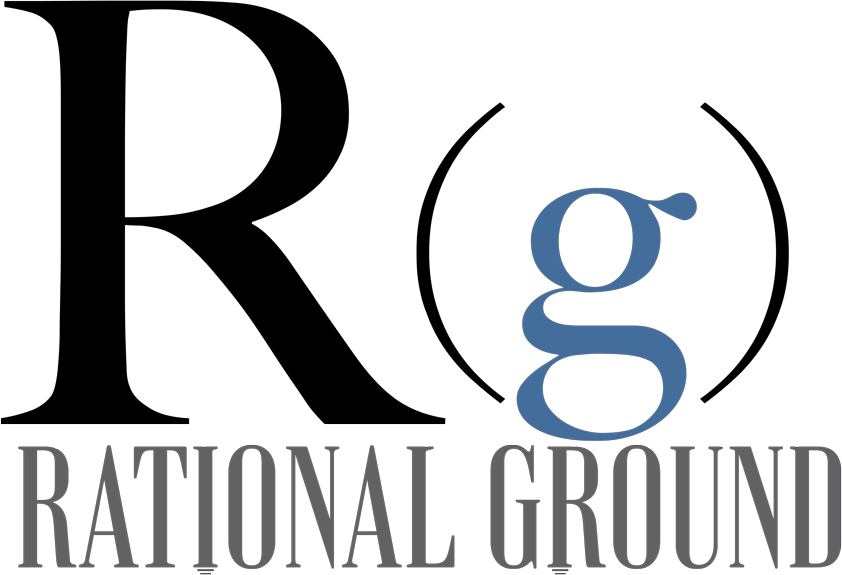COVID Security Theater
In the latest display of security theater, the U.S. will soon require international airline passengers to prove they recently tested negative for COVID before flying to the country.
In other news:
Pfizer has reassured the public that its COVID vaccine remains effective against the new mutant strains detected in Britain and South Africa.
Writing in Spiked, Dave Clements explains how lockdowns destroy more than individual freedom, they imperil the very communities in which our lives have meaning.
The latest data continue to show masks do not work.
Interested in becoming knowledgeable on COVID? Become a premium member. Our premium members get special access to our personal data dashboards and analysis.
Want to support our work? Visit our Substack page and leave us a tip.
On Rational Ground for our premium members, our data analyses will always be available to you. Interested in becoming a COVID expert? Become a premium member.
Additionally, we just released an update on how COVID-19 is playing out on university campuses.
COVID News
Pfizer Says Its Vaccine Works Against Key Mutation in Contagious Variants
https://www.nytimes.com/2021/01/08/health/pfizer-covid-vaccine-variant-mutation.html
Pfizer and BioNTech announced on Friday that their Covid vaccine is effective against one of the mutations present in the new contagious variants identified in Britain and South Africa.
Independent experts said the findings were good news, but cautioned that each of those coronavirus variants has several other potentially dangerous mutations that have not yet been investigated. So it’s possible that one of those mutations affects how well the vaccine works.
“It’s the first step in the right direction,” said Dr. John Brooks, the chief medical officer for the Centers for Disease Control Covid-19 emergency response. “I’m hoping that the additional work that comes out in the future will fall in line with that finding.”
The new variant, known as B.1.1.7, first raised concern in December, when British researchers realized that it was rapidly becoming more common among people with Covid-19. Since then, it has turned up in 45 countries.
U.S. Expected to Require Covid-19 Tests for All International Visitors
The U.S. government is expected to require all international airline passengers to show proof of a negative Covid-19 test before boarding flights to the country, people familiar with the matter said.
The U.S. Centers for Disease Control and Prevention is planning to issue its order as soon as Tuesday, following weeks of discussions among federal agencies and the White House coronavirus task force. The order is expected to go into effect Jan. 26, according to a person familiar with the matter. The CDC and other administration officials were still completing the order.
The CDC order for universal testing of passengers, including for U.S. citizens returning from abroad, comes weeks after the Trump administration imposed a testing requirement for travelers from the U.K. over concerns about a more infectious strain of the virus that was detected there. Since then, the new strain has been found elsewhere in the world, and its presence in the U.S. has been confirmed.
The U.S. requirement comes during a difficult time for the aviation industry and international travelers who face a thicket of varied testing protocols and quarantine requirements around the world, including public-health advisories urging people to stay home.
Commentary/Analysis
COVID-19 PCR Testing: Cycle threshold values are the missing piece of the pandemic puzzle – until now
Most folks by now have heard that the great majority of COVID-19 tests are PCR (Polymerase Chain Reaction) tests. And you may have heard that there are potential problems with interpreting the results of these tests. New data obtained from a Freedom of Information Act (FOIA) request in the State of RI confirms that there is much more information contained in PCR testing than a simple “positive/negative for COVID” result. Yet until now this information has been withheld.
First, a quick review of the PCR test. Originally developed to detect the presence of DNA and RNA in biological samples, even its Nobel Prize-winning inventor Kary Mullis declared that PCR was never intended to diagnose a disease. It simply detects the presence of specific genetic material, which may or may not indicate infection.
With every other disease, clinical symptoms are required for diagnosis. The vaccine trials require specific symptoms along with a positive test to flag someone as a COVID-19 “case”. Yet we are running millions of PCR tests worldwide on asymptomatic folks and quarantining them (this includes essential health care workers) if they test “positive” – no symptoms required.
Rhode Island Crosses the Threshold of COVID-19 Testing Transparency
https://rationalground.com/rhode-island-crosses-the-threshold-of-covid-19-testing-transparency/
Britain at the start of 2021 doesn’t only have a Covid problem — it has a censorship problem, too. The germ of intolerance is spreading. Anyone who dissents, however slightly, from the Covid consensus will find him or herself branded a crank, even a killer. They will be hounded and demonised; online mobs will demand their expulsion from media platforms and from public life. I fear that this Salem-like hatred for sceptical voices will, like Covid itself, have a long-lasting and severely detrimental impact on this country.
In recent days, the censorious fury over Covid scepticism has intensified. The pitchforks are out for experts and commentators who query the seriousness of the pandemic or who suggest that lockdown is not an ideal policy. Karol Sikora, Sunetra Gupta, Carl Heneghan and others — all are now routinely branded as reckless, dangerous spreaders of ‘disinformation’, as toxins in the body politic. ‘Stop platforming them!’, columnists and their intolerant army of online cheerleaders scream at the BBC or anyone else who dares to give these sinning sceptics three minutes of airtime.
Lockdowns destroy more than individual freedom
https://www.spiked-online.com/2021/01/11/lockdowns-destroy-more-than-individual-freedom/
During this seemingly endless pandemic, we now find so many of our freedoms not only under threat, but in some cases already severely curtailed or completely removed. Social-media accounts challenging the government’s illiberal response to the pandemic have been taken down. The police have cracked down hard on protests against lockdown restrictions. And even our freedom to associate with friends and family has been severely curtailed.
Freedoms which, until a few months ago, we had taken for granted, have been taken away. We now have to make do with enforced social distancing, stay-at-home orders, and warnings of Armageddon to come if we do not comply.
As a consequence of such harsh restrictions, we have been robbed, ultimately, of the freedom to be ourselves. Not in the identitarian sense. We have never been freer to declare ourselves the opposite of what we are – a man or woman, black or white, or indeed somewhere in between. We are free to adopt whatever identities we choose, increasingly with the sanction of the state and the promise of a Twitter pile-on if anybody transgresses against these strange new orthodoxies.
But we have been robbed of the freedom to be our social selves. The freedom to be our outward-facing selves. The freedom to be the people we are as part of our wider community.
This freedom may sound paradoxical, given community is sometimes portrayed as the enemy of individual freedom; something from which the individual must liberate himself; something that binds and inhibits him. And this, of course, can be true. Young people, for instance, can feel suffocated by the constraints imposed by the older members of their community. The unconventional and the ambitious want to escape their villages and suburbs. They want to be free of the community’s restrictions on their lives.
Research
ASSESSING MANDATORY STAY-AT-HOME AND BUSINESS CLOSURE EFFECTS ON THE SPREAD OF COVID-1
https://onlinelibrary.wiley.com/doi/epdf/10.1111/eci.13484
Abstract:
Background and Aims: The most restrictive non-pharmaceutical interventions (NPIs) for controlling the spread of COVID-19 are mandatory stay-at-home and business closures. Given the consequences of these policies, it is important to assess their effects. We evaluate the effects on epidemic case growth of more restrictive NPIs (mrNPIs), above and beyond those of less restrictive NPIs (lrNPIs).
Methods: We first estimate COVID-19 case growth in relation to any NPI implementation in
subnational regions of 10 countries: England, France, Germany, Iran, Italy, Netherlands, Spain, South Korea, Sweden, and the US. Using first-difference models with fixed effects, we isolate the effects of mrNPIs by subtracting the combined effects of lrNPIs and epidemic dynamics from all NPIs. We use case growth in Sweden and South Korea, two countries that did not implement mandatory stay-at-home and business closures, as comparison countries for the other 8 countries (16 total comparisons).
Results: Implementing any NPIs was associated with significant reductions in case growth in 9 out of 10 study countries, including South Korea and Sweden that implemented only lrNPIs (Spain had a non-significant effect). After subtracting the epidemic and lrNPI effects, we find no clear, significant beneficial effect of mrNPIs on case growth in any country. In France, e.g., the effect of mrNPIs was +7% (95CI -5%-19%) when compared with Sweden, and +13% (-12%-38%) when compared with South Korea (positive means pro-contagion). The 95% confidence intervals excluded 30% declines in all 16 comparisons and 15% declines in 11/16 comparisons.
Conclusions: While small benefits cannot be excluded, we do not find significant benefits on case growth of more restrictive NPIs. Similar reductions in case growth may be achievable with less restrictive interventions.
Charts and Graphics
Los Angeles - Daily New Deaths Per 1M
US Midwest States, Cases 7 Day MA per 100k
Driving Activity vs. COVID19 Cases
Ireland - Daily New Cases Per 1 Million
International News
The West should envy Japan’s COVID-19 response
On Jan. 1, the world total of coronavirus cases was 83,748,593 and deaths 1,824,140. Japan’s corresponding figures were 230,304 and 3,414. Unusually, in Japan the disease killed more people in autumn-winter than spring. Still, for balance and perspective it’s worth noting that more Japanese died from 25 other causes in 2020. COVID-19 accounted for only 0.3% of all deaths. There were seven times as many suicides and 40 times as many flu and pneumonia deaths. Japan was also one of the few countries without excess mortality caused by COVID-19.
Japan attracted world notice for neither imposing a lockdown nor obsessively testing asymptomatic people. As Tomoya Saito put it in these pages, “Encouraging people with mild or no symptoms to take PCR tests would have revealed nothing but resulted in isolating false-positive cases.” The Stringency Index has been developed by Oxford University’s Blavatnik School in collaboration with Our World in Data to gauge the strictness of nine lockdown measures including school and workplace closures and travel bans, with 100 being the most strict. Japan’s index stayed below 50 until Dec. 8, whereas all its G7 partners have mostly stayed above 50.




